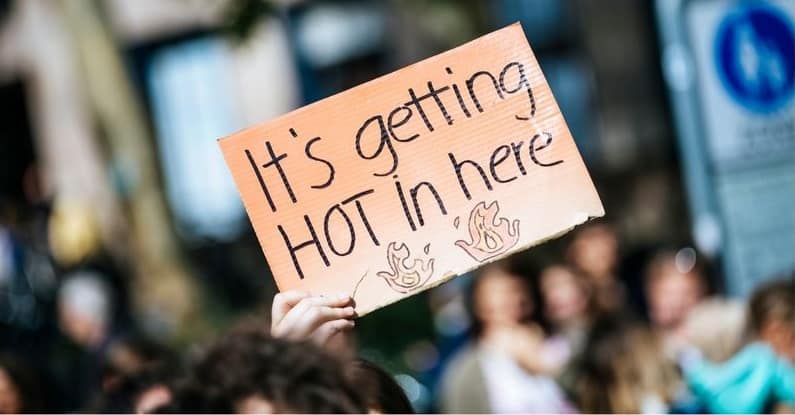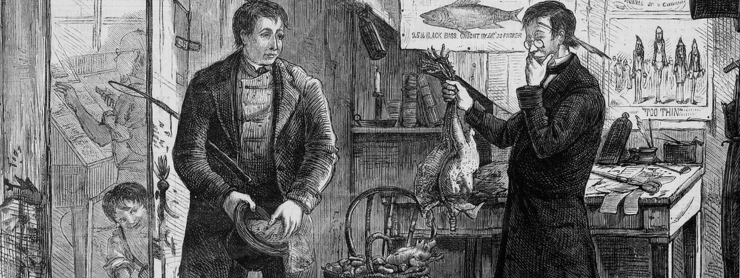One-third of Pakistan is under water. Record heat waves blanket the globe driving up temperatures beyond what humans can survive. Polar glaciers are melting much faster than scientists predicted. Droughts, fires and floods are ravaging the planet, forcing the displacement of tens of millions of people. And this is just the beginning.
It’s time to tell the truth. We can’t afford to wait any longer. We can’t afford to pretend that the same political-economic system that has caused the most historic levels of ecological destruction in human history is the same system that is going to fix it. Here, in the United States— the country most responsible for the highest levels of carbon emissions in Earth’s atmosphere— we have a very difficult task in front of us. We have to tell the truth about the Earth’s thresholds, about the laws of physics, and about what’s causing our ecosystems to collapse, if we are to have any chance of a habitable future for ourselves, our children and grandchildren. We have to tell the truth, if we have any hope of human civilization at all.
But in telling this truth, we are faced with a terrible political reality that few are willing to admit. Many of us understand the science. We know that Earth’s ability to host humans depends on a very delicate balance of physical and ecological conditions that have only been present for a short time during the Earth’s lifespan. The Earth has been around for billions of years, but modern humans, as we know them, have only been here for some 200,000. Humanity is just a blip in our planet’s lifetime. The ecosystems that support human life are now in free-fall in terms of planetary time. We’re in the middle of the Sixth Mass Extinction, but this time, it’s because of human activity, fossil fuel extraction, and the unsustainable abuse of land, air and water. We’re in this terrible predicament because of an extractive economy that requires constant environmental destruction in order to fuel economic growth.
And despite decades of scientific awareness and dire warnings, the world’s most polluting and ecologically-destructive governments have done little to nothing, as they continue to build pipelines and wage global wars that enrich the one-percent, destroy the lives of millions, and drive up carbon emissions exponentially.
The same industries that benefit from ecological destruction- Big Oil, Big Agriculture, Tech Giants, the Military Industrial Complex– have for years tried to sell us a “greener capitalism” as a solution to the crisis. And they have been lying to us. Suggesting that individual consumption habits– light bulbs, electric cars, or the purchasing of carbon offsets– will somehow save us from disaster is a fairytale. It won’t. These attempts at tinkering around the edges of capitalism ignore the very nature of capitalism.
Capitalism as an economic system requires constant growth, constant profit, and endless extraction in order to achieve profit. If capitalism stops growing, stops profiting, it collapses. It is not a system that can ever achieve stasis or balance with other interdependent systems around it. Capitalism is not a stable system. It has to expand, consume everything, create bigger and bigger profits, until it devours its host. Capitalism is like a cancer. Or as Karl Marx wrote in Capital, Volume I, Ch. 15: “Capitalist production, therefore, develops technology, and the combining together of various processes into a social whole, only by sapping the original sources of all wealth — the soil and the labourer.”
Capitalism can grow externally in terms of wars, foreign interventions and militarized accumulation. In fact, as UC Santa Barbara Sociologist William I. Robinson describes, global capitalism has become dependent on war-making to sustain itself. Or it can grow internally by intensifying privatization, destroying labor rights, human rights and environmental protections within existing capitalist markets in order to open up more avenues for profit. In this interview, Robinson describes it:
For 530 years now, since 1492, we’ve had outward expansion- constant waves of colonialism and imperialism, bringing more and more countries, more and more people into the system. Now every country- every community on the planet- is integrated directly or indirectly into global capitalism. There’s no more room for what I call extensive enlargement or outward expansion. The other mechanism that capitalism has to expand is what I call intensive expansion, meaning that you turn more and more sectors and spheres of society into opportunities for accumulation. That’s been privatization- you privatize education, healthcare, public infrastructure, and nature. You’re not opening up new territories but opening up new areas.
In either case, capitalist growth is the growth of poverty, the growth of social and political inequality, of human suffering, and the destruction of the Earth’s ecosystems. We can see it on a global scale— everywhere capitalism has gone, the ecological commons have been destroyed. Indigenous people have been killed or displaced. Workers are enslaved or become alienated from their labor and exploited. And poverty has been created for masses of people where there was none before, while the commons and the public wealth have been privatized and consolidated by the top tier of the economy.
Just look at global wealth inequality. Oxfam’s 2022 Summary gives us a snapshot: “Since 1995, the top one percent [of humanity] has captured nearly 20 times more of global wealth than the bottom 50 percent of humanity. Over the last 30 years, the growth in the incomes of the bottom 50 percent has been zero, whereas incomes of the top one percent have grown 300 percent. Between 2020 and 2021, the wealth of the world’s ten richest men has doubled since the pandemic began. And 20 of the richest billionaires are estimated, on average, to be emitting as much as 8,000 times more carbon than the billion poorest people.”
These obscene levels of wealth, this vast sea of poverty, and all of the political repression, genocide, and endless wars that maintain it… All of this was born from capitalism— a system that privatized the commons, killing and displacing indigenous people from their homelands and forcing enslaved people to labor under conditions of torture, death and imprisonment. These are the origins of this political and economic system on this continent– a system that has metastasized all over the globe. It has become clearer and clearer that maintaining a habitable planet for humans, as well as meeting the material needs of the masses, is a global project that is incompatible with an extractive economy that requires constant economic growth.
There is no logical end to capitalism except the destruction of the earth itself. That is the nature of the beast. And no amount of tinkering around the edges of capitalism will change this fundamental truth. We can buy carbon offsets. We can put solar panels on our houses. We can plant more trees. We can bury carbon in the ground. But none of these strategies can match the scale of the destruction that has already taken place within every layer of the ecosystem. Constant economic growth requires constant extraction– This is not compatible with a living planet whose ecological thresholds are fixed and whose millions of interdependent ecosystems require balance. To understand this basic incompatibility is to understand that capitalism, itself, is at the root of our ecological crisis.
Here in the United States, these simple truths about capitalism are completely obfuscated and denied by the corporate media, the fossil fuel industry, and pretty much everyone in the government because if the truth were known widely, it would upend our political systems. It would pose an existential threat to global capitalists who are profiting from our ecosystem’s destruction. It is no coincidence that the same governments in the world who refuse to do anything serious to halt climate collapse are full of politicians whose pockets are being lined by the same industries responsible for the destruction. The political-economic system causing ecological collapse is the exact same system preventing us from solving this crisis.
And viciously colluding with government and industry failure is a popular culture that has been discouraged from understanding what capitalism is and how it actually works. In truth, it is challenging and perplexing to try to describe a political, economic and cultural system that pervades every aspect of our lives. It is the air we breathe. It is not easy to step outside of capitalism in order to see it objectively, its logic, or the laws that govern it. To see clearly how capitalism works is akin to stepping outside of the matrix.
To make matters worse, ours is a country that has spent its entire history demonizing capitalism’s alternatives— especially communism and socialism. This demonization began with the first US capitalists and colonialists in their attempt to destroy the communism of indigenous nations. The genocide of Native peoples across the Americas wasn’t only motivated by the desire to capture their land base. It wasn’t just about 15th-Century papal bulls that gave Christian nations the right to conquer non-Christian nations. It was also deeply rooted in destroying the idea of the commons, the model of communal landholdings, of communal governance and culture. So indigenous nations were seen by the US government as a threat to capitalism from the beginning. In the eyes of our settler-colonial empire, these nations had to be eradicated—not just for the seizure of their lands, but to eliminate the ideological, political and cultural alternative that they represented. These advanced societies had lived connected to and in ecological balance with the earth for thousands of years.
The US government labeled indigenous nations as “backward” and “savage” not only to justify state violence against them, but also as a way of reinforcing the colonial ideology of Western Expansion, Manifest Destiny, and capitalism to the US public. To allow indigenous cultures to live in peace and sovereignty was fundamentally incompatible with the expansive colonial project that was, and still is, the United States. As indigenous peoples are still laying their bodies on the line to stop pipelines like Keystone XL, DAPL, Line 3, and MVP (just to name a few), we can see how indigenous stewardship of ancestral and treaty-protected homelands, the respect for the common good of all living things, and the desire to protect future generations constitute a cohesive ideology of balance and sustainability— an ideology that is still posing a threat to capitalism today.
Is it any wonder that the United States— a country founded on genocide and built by slave labor— is still killing, caging and oppressing the same peoples on whose land and by whose forced labor all of this wealth was originally constructed? Today, under our system of racial capitalism, the United States imprisons more people (especially black and brown people) than any other country on earth. And by 1955, the indigenous land base had shrunk to just 2.3 percent of its original size.
The “discoverers,” the slave masters, the robber barons, and the oil tycoons of the last few centuries are still with us. Their power has expanded exponentially, and they wear different clothes now. They are the US military and all its private contractors around the globe, police and arms manufacturers, global weapons manufacturers, digital technology CEO’s, the world’s largest bank and oil company executives, and a small handful of multibillionaires whose stockholdings pull the puppet strings of most national governments and dictate the direction of growth in the global economy. And they don’t just dictate the direction of growth, they also dictate the social and political revolutions that must be crushed in order to achieve that growth.
In 1994, after the passage of NAFTA, Mexico’s President Zedillo ordered the army to attack the EZLN (Zapatista)-controlled villages and tried to capture their leaders. Up to that point, Zedillo had been trying to find a peaceful solution to the Zapatista rebellion, but this sudden policy change came after he received an internal memo from Chase Manhattan Bank, which insisted that the Mexican government eliminate the Zapatistas. This is just one of hundreds of examples where Wall Street has dictated what social and political movements around the world must be crushed in order to open up capitalist markets.
In addition, any country or group that has tried to live freely and with any degree of sovereignty outside of capitalism’s ever-expanding chokehold has faced CIA-backed coups, massive military invasions, political interventions, economic blockades and assassinations of its leaders. From the USSR, Libya, Vietnam, Korea, Cuba, Chile, Nicaragua, Venezuela, and Bolivia (just to name a few) to the tiniest and poorest countries like Grenada and Laos, any attempt at an anti-capitalist government or political revolution on the smallest scale has been relentlessly attacked and subverted by US imperial forces working in tandem with global capitalists. These revolutions, these social and political experiments, constitute what Noam Chomsky once called, “the threat of a good example.”
And inside the United States, any social movement that has attempted to organize movements or political parties advancing alternatives to capitalism/colonialism have been viciously attacked—starting in 1492 with the genocide of the indigenous peoples to the repression of slave rebellions from the 1600s onward. And beginning in the late 1800s, US socialist/communist political parties and labor movements were violently repressed. A few examples throughout US History: the Haymarket Massacre (1886), the Pullman Strike (1894), the Ludlow Massacre (1914), the Palmer Raids against the IWW (1917), the multiple imprisonments of Eugene Debs and attacks on the Socialist Party, the Battle of Blair Mountain (1921), the black lists under McCarthyism (1950s), the execution of Julius and Ethel Rosenberg (1951), the relentless attacks against the Black Panthers and the American Indian Movement from the FBI’s COINTELPRO in collaboration with state police; the imprisonment of Angela Davis, Assata Shakur, Bobby Seale, Huey P. Newton, the Chicago 7, the Panther 21, the assassinations of Malcolm X, Fred Hampton, and MLK.
So here we are, friends and comrades, inside the “Belly of the Beast,” as Che Guevara once described the United States. And we are surrounded by layer upon layer of capitalist indoctrination, myths of US exceptionalism, white supremacist and colonial histories, and constant propaganda to prevent us from recognizing and questioning the basic idea that this this political-economic system might be the cause of so much global suffering, even as it has grown so big and powerful as to threaten our own species survival.
As a young university student many years ago, I had the privilege of studying sociology under John Bellamy Foster– one of the most renowned Marxist sociologists in the United States, who has spent a lifetime documenting capitalism’s relationship to ecological destruction. In his classes, I was often surrounded by other sociology students who, when discussing the ecological crisis, echoed the refrain of the dominant culture— “If humans weren’t so greedy, we wouldn’t be in this situation!”
While I understand the frustration that leads to this statement, human history does not back it up in any way. I can’t count the times over the years that I have heard the “humanity equals greed” argument. I have many indigenous friends who would not take kindly to the white-supremacist idea that their resilient and time-tested cultures, which have lived in relative harmony with the Earth for thousands of years, are still not recognized under the popular definition of “humanity.” For someone to describe the whole of humanity as greedy, without ever having researched or experienced any of capitalism’s alternatives, represents a kind of self-reinforcing myopia that can only lead us deeper and deeper down the rabbit hole— into a tunnel that is rapidly narrowing and coming to an end.
Furthermore, this humanity-equals-greed myth is a mask designed to cover up the fact that capitalism rewards and reproduces only the worst qualities of human nature, while it starves and deprives our best qualities— our natural instincts toward caretaking each other, toward solidarity, mutual aid, and building community. Most of us, humans, possess these good qualities as well, but these cooperative human qualities are not financially or politically rewarded under capitalism. The volunteer work, the acts of kindness toward strangers— these activities can exist as hobbies inside of capitalism. They are socially approved, as long as they take place outside the hours of our wage labor, and as long as they don’t threaten the power structures that maintain the system. Or in the words of Brazilian Archbishop Dom Helder Camara, “When I feed the poor, they call me a saint, but when I ask why the poor are hungry, they call me a communist.”
We must broaden our minds and our movements if we are to survive. Against all odds, against all indoctrination, we have to imagine a different future in order to create it. Even within this society that refuses to see beyond its own economic walls, its own self-constructed, capitalist paradigms, we must be brave enough and honest enough to seek the truth— to understand that capitalism is not inevitable. It is but one type of economy with distinct features and characteristics, and it can be replaced, just as it was instituted. It will not be easy. It will require nothing short of a global political, social and economic revolution. But if we cannot summon the courage and the international solidarity to embark on this journey together, then capitalism will devour us—all of us. If we cannot collectively envision and design a future beyond capitalism, then there will not be a future that includes us.
It starts by understanding the system we are living under and what the laws are that govern it. It starts with studying capitalism’s alternatives (socialism, communism, and anarchism) in order to have the theory and the understanding of alternative political economies. We know why the “S” word and the “C” word have been so uniformly demonized throughout US History, why red-scare tactics are always a tool of the ruling class, and why these tools are resurging again at this moment, as more and more youth turn toward capitalism’s alternatives. The ruling classes don’t want us to see beyond the walls of our own cages.
Capitalism is not just an economic system, but a political system that has locked us into profit-driven political parties and political cycles that never allow us to structurally evolve out of our deepest and most existential crises. Let’s be clear— this isn’t about voting. This is about building a revolution— an international solidarity movement big enough to take on and replace global capitalism. We have to learn how previous anti-capitalist movements have been destroyed, neutralized and subverted and begin learning from that history before it’s too late.
We must work together. We cannot stay in our silos. Silos are based on individual identity, and we must build collective, class-based, and international solidarity if we are to survive the chaos that is coming. No matter who we are, our struggles and our liberation are connected. Societies based on individualism cannot survive species-level extinction events. This is going to require all hands on deck— all of us working together.
We must make ourselves useful to the movements around us that are already taking the biggest risks and doing the hardest work— from indigenous movements like the Red Nation, who have already created revolutionary programs to address these overlapping crises, to land and water protectors, to labor unions, to abolition movements, to racial and economic justice movements, to anti-war and peace movements. We have the teachers and the leaders that we need.
We must build massive networks of support and care at local and community levels, while at the same time, build international political movements that can replace the most corrupt capitalist states. It’s a long, hard road ahead and a multi-generational project, and it’s not for the weak of heart. It’s going to take all of our courage, all of our resilience, and all of our love for our children and grandchildren. And it starts with telling the truth about capitalism.
Erin McCarley is an independent photojournalist, filmmaker and writer based in Denver, Colorado. Her still photography, videos and/or writing have been published by Dissident Voice, CounterPunch, Common Dreams, Real Progressives,Yes! Magazine, Due Dissidence, The Christian Science Monitor, the Westword, teleSUR English, Free Speech TV in Boulder, CO, KLRU TV in Austin, TX, the MIT Press, the Ford Foundation, Science Daily, The Daily Texan, and others. She also co-hosts the political podcast Crawdads & Taters: Red State Rebels.
Photo credit: Levin Holtkamp, CC BY-SA 4.0, via Wikimedia Commons






I have no words to say how much I agree with Erin McCarley in this article. “To see clearly how capitalism works is akin to stepping outside of the matrix.” I modestly join that fight to change the narrative on my own website.